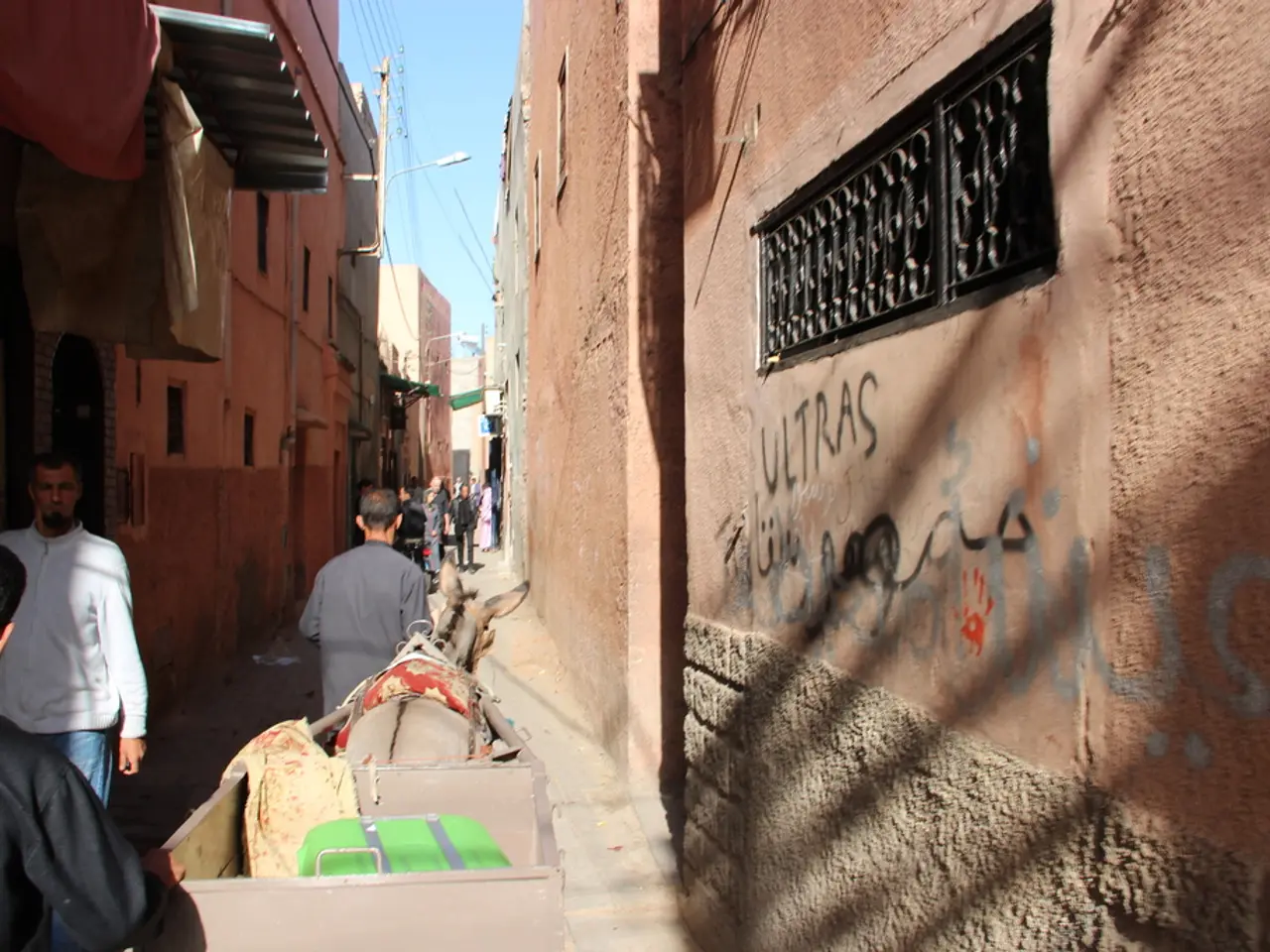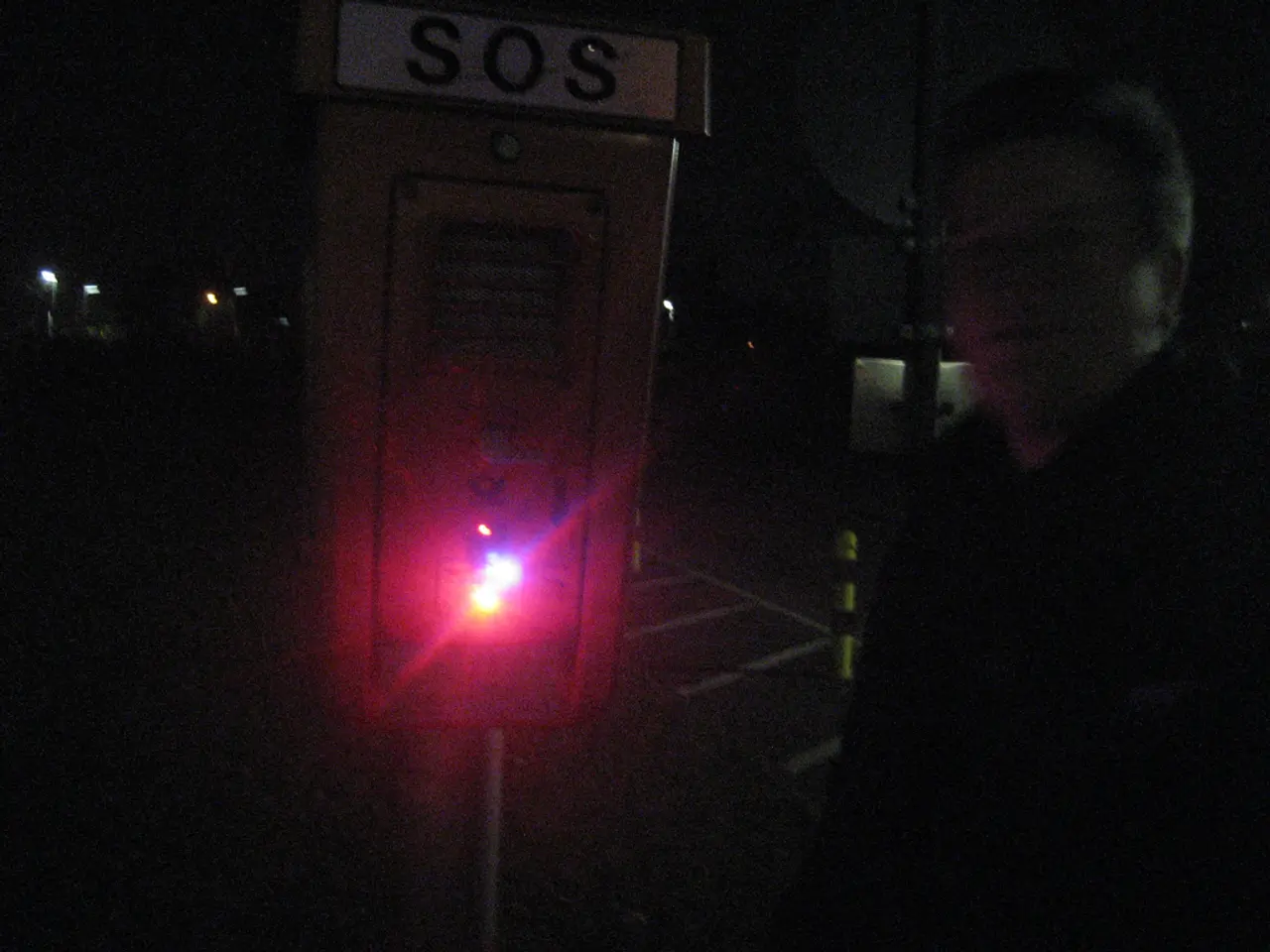Investigation Authority for Ukraine Aid Now Required
In the aftermath of the Afghan conflict, the world is left grappling with the lessons learned from the strategic failures that led to the Taliban's resurgence. One of the most significant factors contributing to this outcome was the rampant corruption that crippled the Afghan army, making it almost entirely dependent on US firepower [1].
Similarly, Ukraine faces a daunting corruption problem that, if left unaddressed, could potentially lead to strategic failure. This was evident when Ukrainian President Volodymyr Zelenskyy, who was originally elected as an anti-corruption reformer, found himself grappling with the issue [2].
The Special Inspector General for Afghanistan Reconstruction (SIGAR) identified these strategic failures and corruption, publishing reports with recommendations. However, the implementation of these recommendations was often hindered due to the failure of US executive agencies and Congress [3].
In Afghanistan, the government under Hamid Karzai had a kleptocratic character, and corruption problems were known from the beginning but were not addressed [4]. Similarly, Ukraine has a corruption problem that, if left unchecked, could grow uncontrollably, similar to Afghanistan [5].
The key lessons learned from Afghanistan that can be applied to prevent corruption in Ukraine include the necessity of building transparent, accountable, and locally legitimate governance institutions. This means creating spaces for civil society engagement, an independent judiciary, and separation of powers to fight corruption [6].
Tackling corruption in security forces is critical. In Afghanistan, police reform using district-by-district training in principles of law enforcement, protection of citizens’ rights, and ending practices like extortion proved an essential "first step" to breaking cycles of corruption within the security sector [7].
A holistic approach that integrates security efforts with governance and development, supported by both military and civilian personnel, is necessary. Military-centered strategies alone will not suffice to reduce corruption and build sustainable institutions [8].
Afghanistan’s experience warns about the danger of rampant corruption linked to illicit economies (e.g., drug trade), which corrupts officials at various levels and enables insurgent groups to finance themselves [9][10]. Addressing such illicit financial flows is key in anti-corruption efforts.
In Ukraine, efforts must be holistic and coordinated, integrating reform in governance, security, rule of law, and development, with consistent international support that is sensitive to Ukrainian realities [11]. Oversight of finances and combating illicit activities (such as smuggling or corruption in resource sectors) are necessary to prevent the kind of systemic corruption seen in Afghanistan.
Engagement with civil society and media to promote transparency and accountability must be prioritized to sustain anti-corruption gains [12].
In sum, Afghanistan’s complex experience teaches that combating corruption requires not just institutional design but embedding accountability, local ownership, holistic security and development approaches, and addressing illicit financial flows [6][7][8][9][10]. Ukraine can apply these lessons to avoid the pitfalls of top-down, militarized, or fragmented reform efforts that fail to address root causes of corruption [11][12].
References:
[1] "Corruption in Afghanistan: The Challenge of State Building." International Centre for the Study of Radicalisation and Political Violence, 2011.
[2] "Ukraine's Corruption Problem." The Economist, 2019.
[3] "SIGAR's Final Report." Special Inspector General for Afghanistan Reconstruction, 2021.
[4] "The Afghan Government's Kleptocratic Character." The New York Times, 2009.
[5] "The Corruption Problem in Ukraine." Transparency International, 2020.
[6] "Lessons from Afghanistan: Implications for Ukraine." Center for International Private Enterprise, 2015.
[7] "Police Reform in Afghanistan." United States Institute of Peace, 2012.
[8] "A Holistic Approach to Afghanistan's Corruption." Brookings Institution, 2011.
[9] "The Drug Trade and Corruption in Afghanistan." United Nations Office on Drugs and Crime, 2010.
[10] "Illicit Financial Flows in Afghanistan." Global Financial Integrity, 2011.
[11] "Ukraine's Anti-Corruption Struggle." Carnegie Endowment for International Peace, 2019.
[12] "Engaging Civil Society in Ukraine's Anti-Corruption Efforts." National Democratic Institute, 2018.
- Ukraine's corrupted security forces, if left unchecked, might face similar strategic failures as those seen in Afghanistan, contributing to potential strategic failure.
- The ongoing corruption challenge in Ukraine shares striking similarities with Afghanistan's corrupt government during Hamid Karzai's tenure, as both governments failed to address the problem despite known issues.
- Implementing strategies that focus on building transparent, accountable, and locally legitimate governance institutions, including civil society engagement, an independent judiciary, and separation of powers, offers key solutions to address corruption in both Afghanistan and Ukraine.
- Combating corruption and illicit financial flows, such as the drug trade and smuggled resources, requires a holistic approach, integrating governance, security, and development reforms with continuous international support sensitive to local realities.





